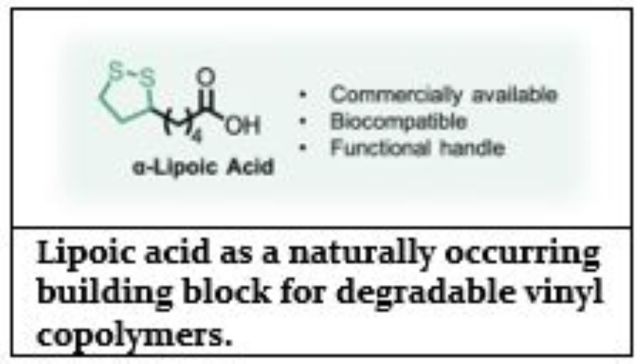
"Designing Sustainability: Synthesis and Application of Degradable Copolymers"
K. R. Albanesea, P. T. Morrisa, C.M. Batesa and C.J. Hawkera
aMaterials Research Laboratory, University of California, Santa Barbara, 93106
The development of plastics has yielded an outsized impact across polymer science and beyond, but a major limitation of their synthesis relates to the use of traditional vinyl monomers that form backbones composed entirely of carbon–carbon bonds. As a result, vinyl polymers are difficult to degrade and create issues associated with long-lived plastic and rubber waste in the environment. This poster will outline the synthesis and characterization of degradable vinyl polymers with an emphasis on applications and synthetic accessibility.
A contemporary challenge facing most applications of polymers relates to sustainability and scalability. The key building block in my research is α-lipoic acid, a natural, biocompatible, and commercially available antioxidant found in various consumer supplements. α-Lipoic acid features a saturated 1,2-dithiolane ring that undergoes radical ring-opening polymerization in the presence of UV light, heat, or radical initiators, resulting in dynamic and degradable disulfide bonds. Here, we will present different synthetic approaches using α-lipoic acid and related dithiolanes to transform otherwise persistent plastics into degradable and recyclable materials.